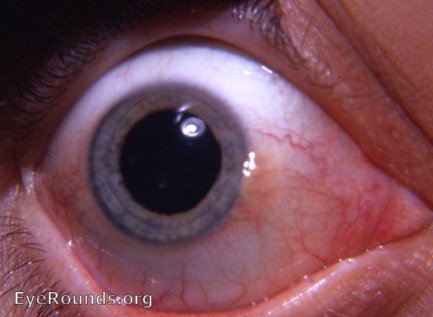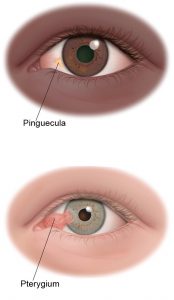Pinguecula Causes

Despite not being harmful, pinguecula can affect your vision. If you notice changes in your eyes, see an eye doctor for diagnosis. Surgery may be needed to remove the clump. But most people only have this cosmetic issue. Fortunately, it is a relatively simple outpatient procedure. The pinguecula is carefully cut away from the eye. The surgeon may place a tissue graft on the eye to prevent future regrowth.
Since pinguecula does not grow on the cornea of the eye, it is usually not a serious problem. However, severe cases may require surgery. Wearing sunglasses with UV protection and wearing a hat are two easy ways to prevent this condition from affecting your vision. Most pinguecula are harmless and only require simple treatment. Here are some ways to prevent pinguecula. To protect your eyes from the rays of the sun, use a hat and sunglasses with UV protection.
Long-term exposure to UV light and dry eyes are the most common causes of pinguecula. It is most common in people who spend long periods outside without wearing protective eyewear. Although the rays of the sun can cause pinguecula, it can often be detected with the naked eye. Your doctor will use a slit-lamp biomicroscope to diagnose the condition and determine if there are any associated issues.
Occupational exposure to ultraviolet light may be one of the causes of pinguecula. While it is rare in children, exposure to the sun can cause it to develop. Some occupational exposure to ultraviolet light may also contribute to this disease. Almost all people show signs of pinguecula by their 80s. But the most common cause is age-related. You should avoid prolonged contact with brightly-lit rooms when possible, so that you can avoid it.
If you are exposed to ultraviolet rays, it can lead to pinguecula. This condition is usually associated with an increased risk of cataract surgery in people over 40 years of age. The most likely cause of pinguecula is occupational exposure to ultraviolet radiation. It is more common in men than in women. If you have a family history of pinguecula, your doctor may recommend surgery. If you are suffering from pinguecula, it is better to see a doctor as soon as possible and visit the family medical blog https://niscala-garden.com/blog/
to avoid a relapse.

Occupational exposure to ultraviolet radiation is a common cause of pinguecula. It is also associated with prolonged sun exposure and is common in people who spend a lot of time outdoors without eye protection. Although pinguecula is not easily diagnosed with the naked eye, it can be diagnosed using a slit lamp biomicroscope. This allows the doctor to measure the size of the pinguecula and identify problems associated with it.
Prevention is the key to preventing pinguecula. You should avoid excessive sun exposure and wear a hat or brimmed hat. Also, wear sunglasses that block ultraviolet rays. The most effective way to protect your eyes is to protect them from wind and dust. When the sun is too hot, you should wear sunglasses. Additionally, you should always wear safety glasses when you are outdoors.
Another reason is occupational sun exposure. The sun’s rays can damage the eyes, causing pinguecula. Fortunately, pinguecula is not dangerous. It is easy to treat and does not require surgery. Your ophthalmologist will use a slit lamp biomicroscope to examine the affected area. In some cases, the pinguecula can be removed surgically.
There are several ways to prevent pinguecula. Most importantly, it’s a non-cancerous condition that doesn’t cause any pain. While pinguecula doesn’t cause discomfort, it can cause irritation and itching. If the pinguecula becomes painful or inflamed, you may need surgical treatment. Most people opt for this cosmetic procedure for cosmetic reasons. It’s important to know your options, as the condition can worsen if you’re not properly protected.
As pinguecula is non-cancerous, it is not dangerous. However, it can lead to a variety of side effects, including infections and glaucoma. A doctor should be able to tell you if your pinguecula is a benign or cancerous mass. If you’re concerned about a particular pinguecula, consult your doctor. If it’s a cyst, it’s best to get it removed surgically to avoid infection.